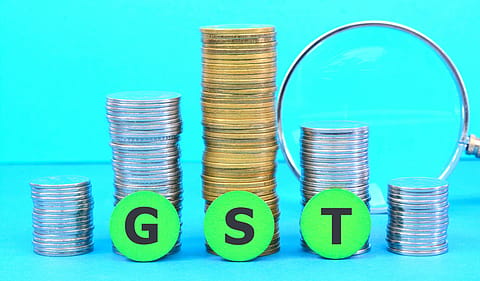End of GST compensation to hit 6 states hard: RBI
The RBI says during the five-year transition period, the top five GST compensation-receiving states were Maharashtra, Karnataka, Gujarat, Tamil Nadu, and Punjab.

The economies of six states will be most “adversely affected” if the central government decides to end the GST (goods and service tax) compensation regime, the RBI says in its latest report on states' finances.
Overall, the north-eastern states have been the biggest beneficiaries of the GST regime, recording a compound annual GST revenue growth rate of 27.5% since the implementation of the GST (2017-18 to 2022-23) against 14.8% for all states, the RBI data shows.
"However, the states that are likely to be most adversely affected by the end of the compensation regime are Puducherry, Punjab, Delhi, Himachal Pradesh, Goa and Uttarakhand for which the share of GST compensation in tax revenue has exceeded 10% on an average," the RBI report adds.
The requirement for GST compensation has varied widely across states. During the five-year transition period (July 2017 to June 2022), the top five compensation-receiving states were Maharashtra, Karnataka, Gujarat, Tamil Nadu and Punjab.
The RBI says the consolidated GST revenue of all states, comprising SGST and devolution from CGST, is budgeted higher than revenue projected in 2022-23, with the guaranteed 14% annual growth. Ten states are expected to fall short of 14% GST growth as per their budget estimates. The apex bank says in future, in the absence of GST compensation, the states need to augment their revenue by increasing compliance, plugging leakages and widening tax bases.
Despite persisting headwinds, says the RBI, states’ fiscal outlook remains favourable on expectations of high growth in revenue receipts than initial estimates on the account of strong GST collections and higher tax devolution.
Additionally, the capital outlay, which remained muted in initial months, is expected to pick up in H2 FY23, says the RBI. Notably, states are making efforts to meet budgeted capex targets, supported by resource availability through relaxation in the norms for off-budget borrowings, front-loading of post-devolution revenue deficit grants, advance instalments of tax devolution and payment of GST compensation cess.
Recommended Stories
Notably, the Centre has already made two advance instalments of tax devolution to the states in August and November 2022. Additionally, the Centre sanctioned ₹77,110 crore to states under the Scheme for Special Assistance to States for Capital Investment.
After the introduction of the GST on July 1, 2017, June 30, 2022, marked the end of the transition period, during which states were compensated for any loss in revenue due to its implementation. States were guaranteed a minimum annual increase in revenue of 14% during the transition period.
The compensation to states was being met through the levy of a GST compensation cess on specified goods and services. In the first two years of implementation of GST, the collections from the GST compensation cess were higher than the disbursement of compensation to states, but this reversed in 2019-20, the RBI data shows.
Amid the pandemic, the GST collections nosedived, and the corpus available in the GST compensation cess fund was insufficient to meet the compensation demand from states. Later, the Union government resorted to market borrowings of ₹1.10 lakh crore and ₹ 1.59 lakh crore in 2020-21 and 2021-22, respectively, to provide loans to states for a shortfall in GST compensation.
(INR CR)